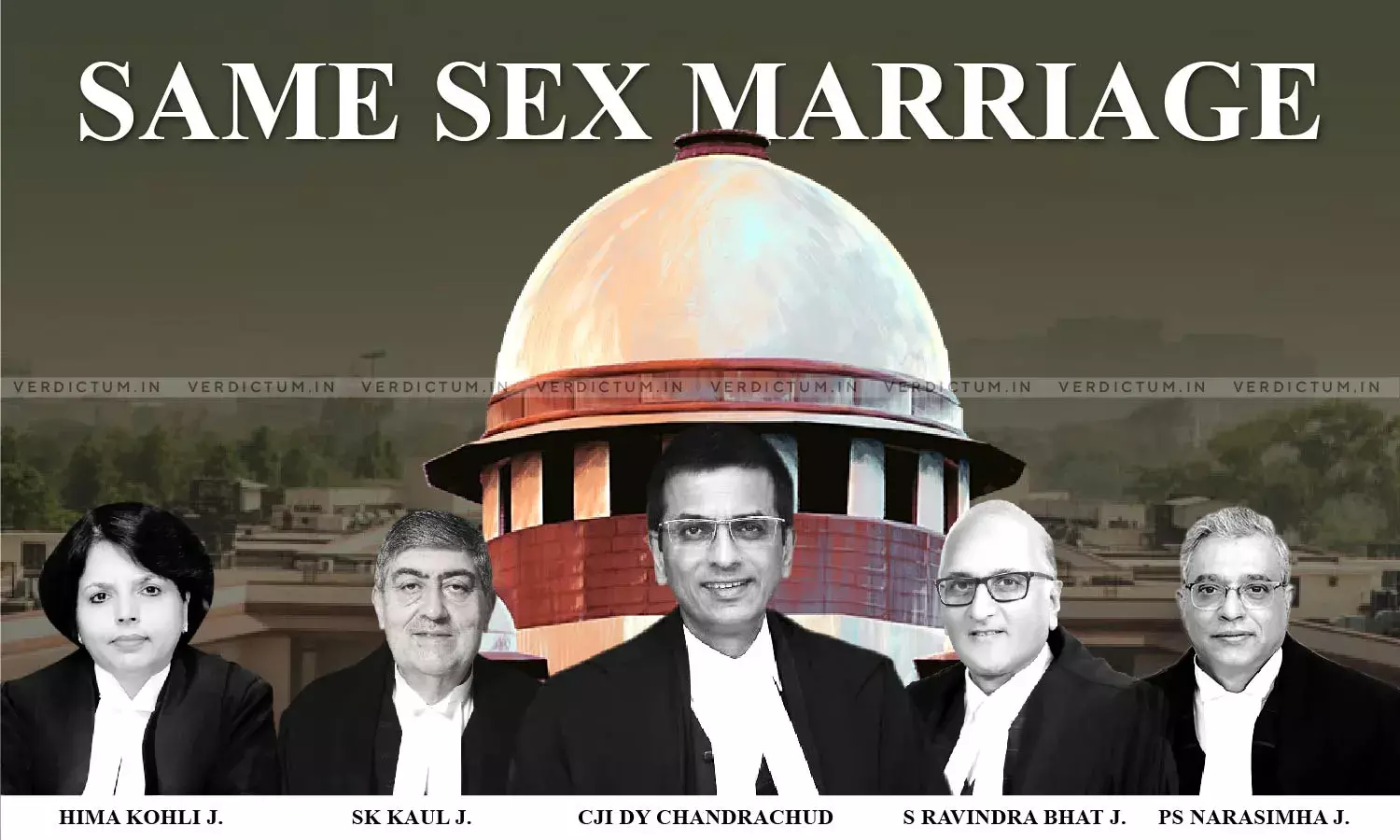Provisions Of Special Marriage Act Requiring Public Notice Before Registration Is Based On Patriarchy, Says Supreme Court

On the third day of the hearing by the Constitution Bench of the Supreme Court in the matters seeking legalization of same-sex marriage, Senior Advocate Dr. Abhishek Manu Singhvi has concluded his arguments.
The Constitution Bench comprising Chief Justice DY Chandrachud, Justice SK Kaul, Justice S Ravindra Bhat, Justice Hima Kohli and Justice PS Narasimha is hearing the matter.
Singhvi in his submissions today, raised several facets relating to the Special Marriage Act, 1954.
On the provision of notice and objection under the Special Marriage Act, 1954 (SMA), Singhvi submitted, “In Parsi marriages, Christian marriages and so many other forms of marriages, none requires a notice of prior intent to marry. And this is peculiar to the Special Marriage Act that before I intend to marry you, I must declare this intent publicly”.
To this challenge to notice and objection under the Act, Solicitor General Tushar Mehta objected saying, “This is a different issue, we have not filed a reply”. “My learned friend has filed a reply, it is a constitutional issue, let me finish. It is unconstitutional because, before a formal entry into a marriage, you are invading my privacy by requiring me to declare my intention in public domain for objections to be invited”, Singhvi replied.
“Which married couple in the heterosexual world has to announce first to the world their intention to marry? Forget heterosexuals but even in personal laws. It is my personal decisional autonomy.”, asked Singhvi
He further said that “it is the heart of my privacy to decide when, how, and after how much time to get into a matrimonial relationship and with whom. Be it the same sex or heterosexuals”.
Justice Bhat agreeing to the submission said, “this was based on patriarchy”. “Yes”, Singhvi replied.
Going on to the next point Singhvi said, “My next point is that if you have conditions of marriage and you are required to file an affidavit to say that I satisfy all the conditions, and if those conditions are found false, the world can challenge. What is the purpose of this prior notice? You are serving Patriarchy in actual practice even in heterosexual marriages”.
Singhvi further submitted, “the other aspect it hits is choice, where individual decisional autonomy, privacy, individual dignity, I am putting them all under one, as they are constitutional core values. And for the same reasons should not only be struck down for same sex couples, but also for heterosexuals and non-heterosexuals”.
Justice Narasimha then asked, “Was notice and objection there in the 1872 Act?” Singhvi replied in the affirmative. Justice Bhat then said, “these laws were made when women did not have an agency”. “Yes, and this would be a disaster and inviting violence”, replied Singhvi.
“And the object was to protect. This is like laying them open for invasion by society including District Magistrate, Superintendent of Police…”, said CJI.
When the Bench assembled after lunch, Senior Advocate Raju Ramachandran commenced his arguments on behalf of the petitioners.
Supriyo@Supriya Chakraborty vs Union of India & Ors.

